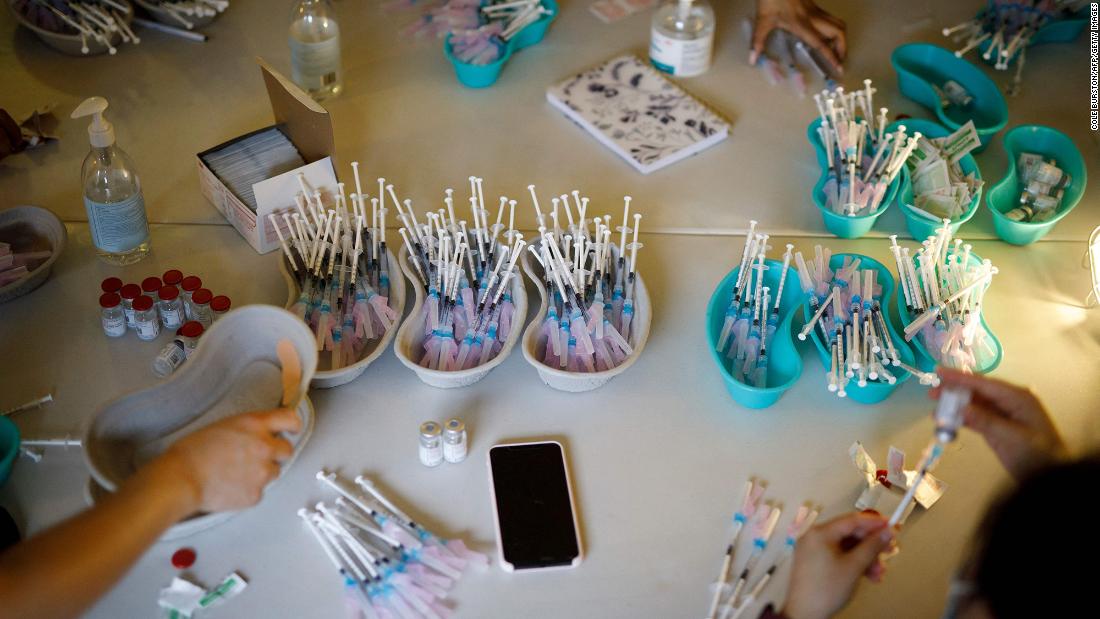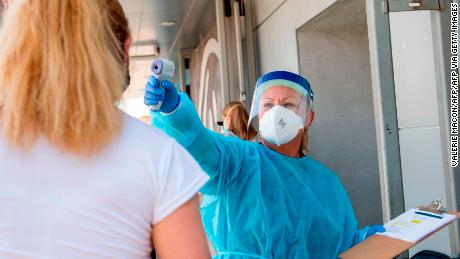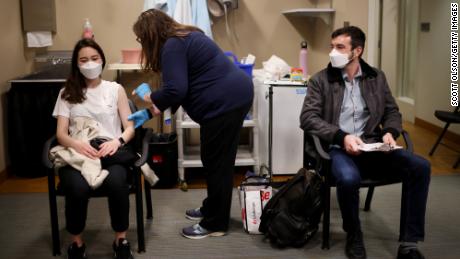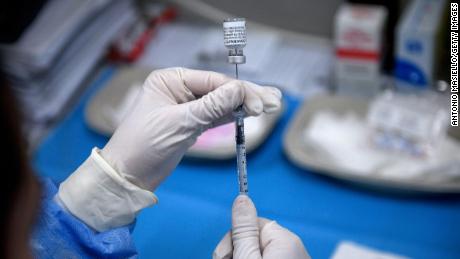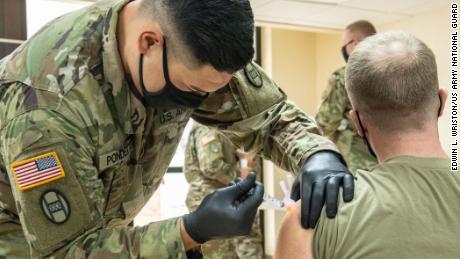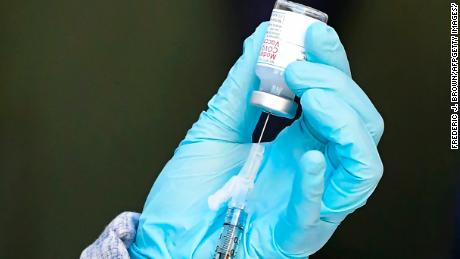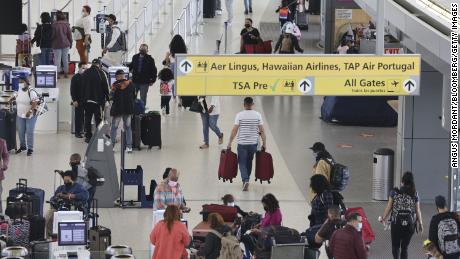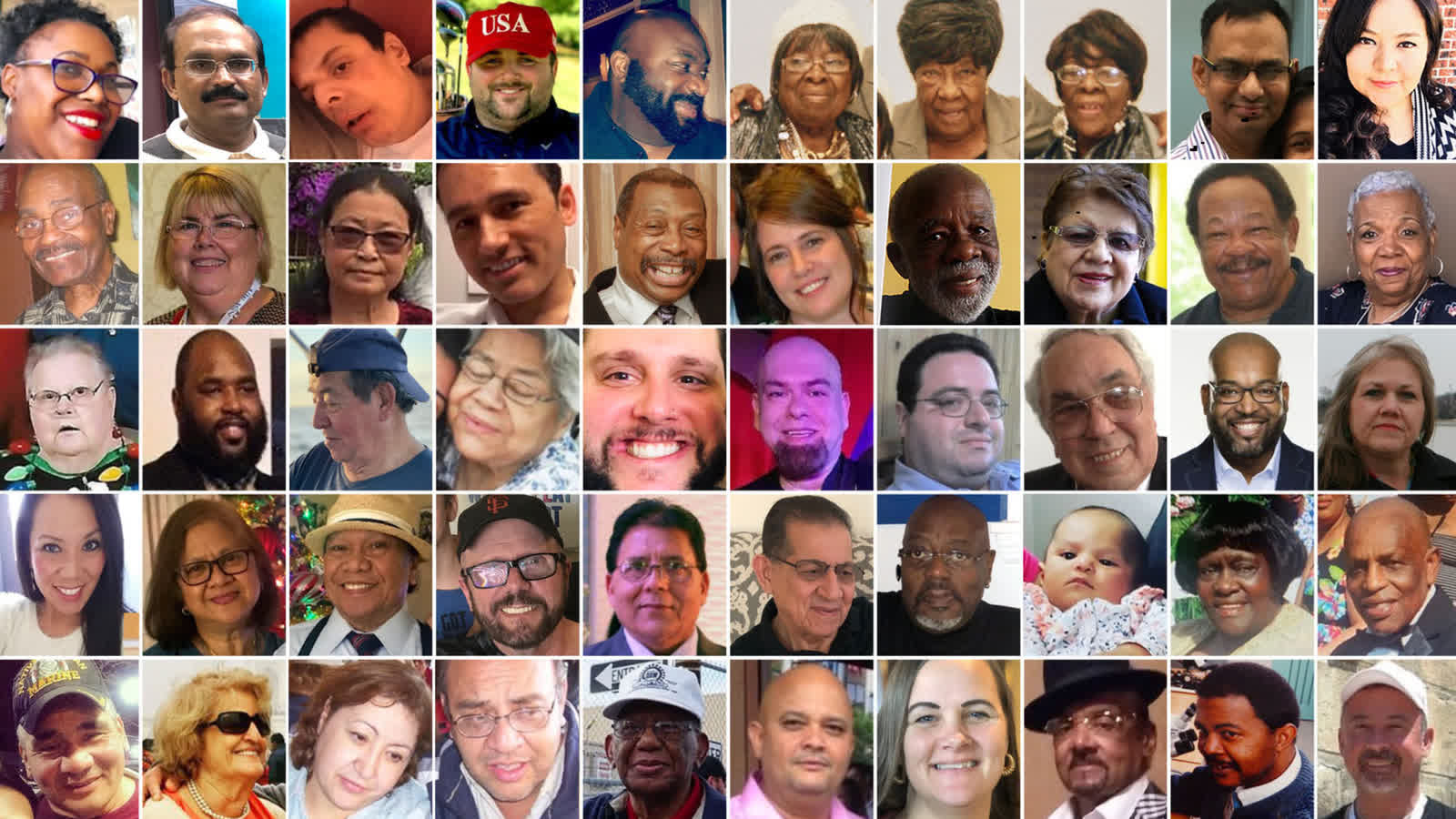Don’t freak out if you get these side effects from a Covid vaccine. They can actually be a good sign.
Don’t panic, doctors say. Side effects from Covid-19 vaccines won’t last long. And they’re actually proof that your immune system is working the way it’s supposed to. (Though vaccines are still very effective even without side effects.)
Here are some of the most common side effects from Covid-19 vaccines, how you can manage them, and why you shouldn’t use them as an excuse to skip vaccination:
“The kinds of things we’re seeing are arm soreness, body aches, sometimes fatigue, sometimes even low-grade fever,” said Dr. Peter Hotez, a vaccinologist and dean of the National School of Tropical Medicine at Baylor College of Medicine.
After he got his second dose of the Pfizer/BioNTech vaccine, “I had shaking chills for a couple of hours,” Hotez said.
“And we know why this happens — because the vaccine is very potent in inducing an immune response. That’s one of the reasons why we’re getting such high levels of protection” against Covid-19.
Wait — could I have gotten Covid-19 from the vaccine?
No. It’s literally impossible to get Covid-19 from any of the vaccines used in the US because none of them contains even a piece of real coronavirus.
How many people get side effects?
“Most people will have much less noticeable side effects,” he said.
That means about 0.0005% (or less) of those who get a Covid-19 vaccine have a serious, negative response.
The good news is even when severe outcomes do happen, “they usually happen in the first 30 minutes,” Hotez said.
“That’s why vaccine sites keep people there for 15 to 30 minutes afterward — to make certain they’re not having an anaphylactic reaction.”
Do some vaccines produce more side effects than others?
Every body is different. So the exact same vaccine can leave one person feeling sick for a day and another person feeling perfectly fine.
With that said, “the mRNA vaccines — the Pfizer and the Moderna — they are what’s called more reactogenic, meaning there are more side effects,” Hotez said.
“They’re not serious side effects, but they can be unpleasant, and they can sometimes last a day or two. Usually they don’t. Usually they last a few hours.”
Both the Pfizer/BioNTech and Moderna vaccines give about 95% protection against symptomatic Covid-19, and both are virtually 100% effective against severe Covid-19 illness. In their clinical trials, no one who was vaccinated died from Covid-19.
Is it true second doses are worse than the first?
The Johnson & Johnson vaccine requires only one dose, but the Pfizer/BioNTech and Moderna vaccines require two doses.
But again, that’s another sign the vaccines are doing what they’re supposed to.
“With the first dose, you are having to generate an immune response from the ground up,” said Michael Worobey, an evolutionary biology professor at the University of Arizona.
The body produces antibodies, but also starts to generate immune cells called B cells to make targeted antibodies — and that takes time, Worobey said.
“Then the second time you give a person the shot, those cells are sitting around like a clone army and can immediately start producing a very big immune response, which is what is happening when people feel like they have been kicked in the teeth.”
Some vaccines build up plenty of response with a single dose, said professor Thomas Geisbert, an expert in emerging viral threats at the University of Texas Medical Branch. But the second dose in two-dose vaccines builds a longer-lasting defense force.
Can I skip the second dose to avoid stronger side effects?
That’s a really bad idea, Hotez said.
Not only would you miss out on increased protection, but you’d also likely reduce the time span of your protection.
“Your immune system is already jacked up from the first dose,” Geisbert said. So with a second dose, “you tend to build up a longer and more durable response.”
Can I take over-the-counter meds if I get side effects?
But it’s “not recommended you take over-the-counter medicine — such as ibuprofen, aspirin, or acetaminophen — before vaccination for the purpose of trying to prevent vaccine-related side effects.”
“It is not known how these medications might affect how well the vaccine works,” the agency said.
“However, if you take these medications regularly for other reasons, you should keep taking them before you get vaccinated. It is also not recommended to take antihistamines before getting a COVID-19 vaccine to try to prevent allergic reactions.”
When should I get help if my side effects seem severe?
“In most cases, discomfort from pain or fever is a normal sign that your body is building protection,” the CDC said.
Ditto if the redness or tenderness from where you got the shot gets worse after 24 hours.
If there’s a chance for side effects, do young, healthy adults really need to get vaccinated?
There are plenty of reasons why young, healthy people should get a Covid-19 vaccine:
“So remember that the B.1.1.7 variant is different from past types of Covid infections that we’ve seen — more serious and possibly more severe disease among younger people.”
Young people can get long-term Covid-19 complications. While they’re less likely to die from Covid-19, plenty of young, healthy people have turned into Covid-19 “long-haulers.”
If not enough people get vaccinated, we’ll never reach herd immunity. “It’s important to vaccinate as many adults as possible as soon as possible,” internal medicine specialist Dr. Jorge Rodriguez said. “If you want to open up America, get vaccinated.”
Should I take a day off work after getting vaccinated?
It’s not necessary, but Hotez suggests taking it easy for a day after each shot.
“After your first or second dose, what I’m recommending is people not try to take on too ambitious of an agenda for the next 24 hours afterward,” he said.
“In other words, if you’re getting vaccinated, don’t schedule an important meeting or an important presentation or a meaningful family event. And then just be modest in your ambition the day you’re getting vaccinated and the day afterwards.”
That’s just to err on the side of caution, he said. “Chances are, you may be fine.”
Are the side effects worth it?
Absolutely. “Remember what we’re protecting against,” Hotez said.
Even those who had bad side effects said they have no regrets.
“I actually had some pretty significant symptoms after I got the second dose,” said Yasir Batalvi, who volunteered in Moderna’s vaccine trial.
“That evening was rough. I mean, I developed a low-grade fever and fatigue and chills,” he said.
But by the next morning, Batalvi “felt ready to go.”
He said he encourages everyone to get vaccinated because the benefits greatly outweigh the side effects.
“I think mass scale vaccination is really the only realistic way out of the pandemic,” he said. “I took the vaccine — it was all right. I think we can get through this.”
CNN’s Maggie Fox and Ryan Prior contributed to this report.
![]()


